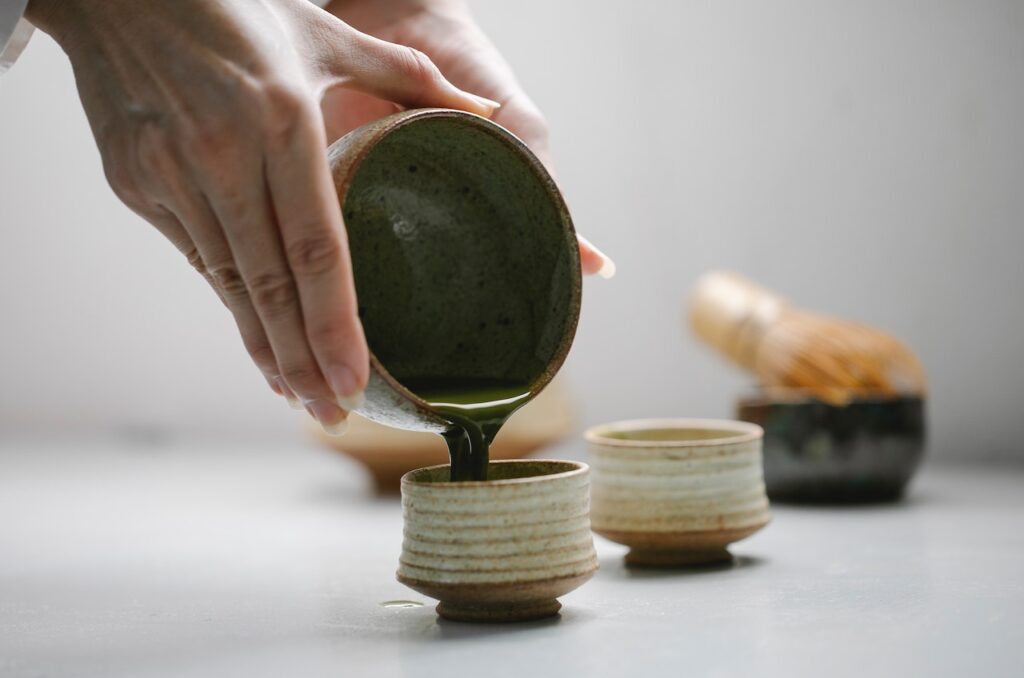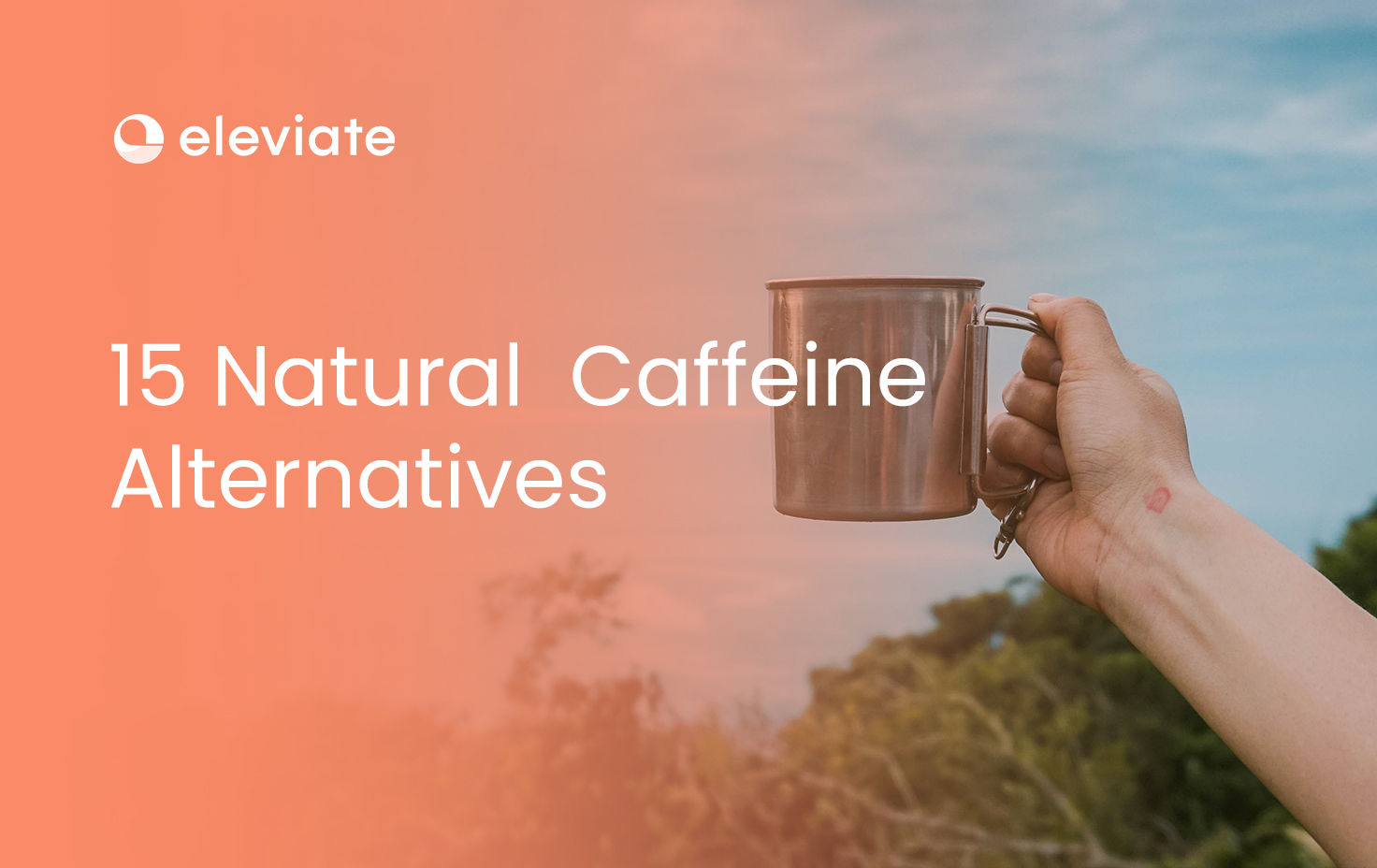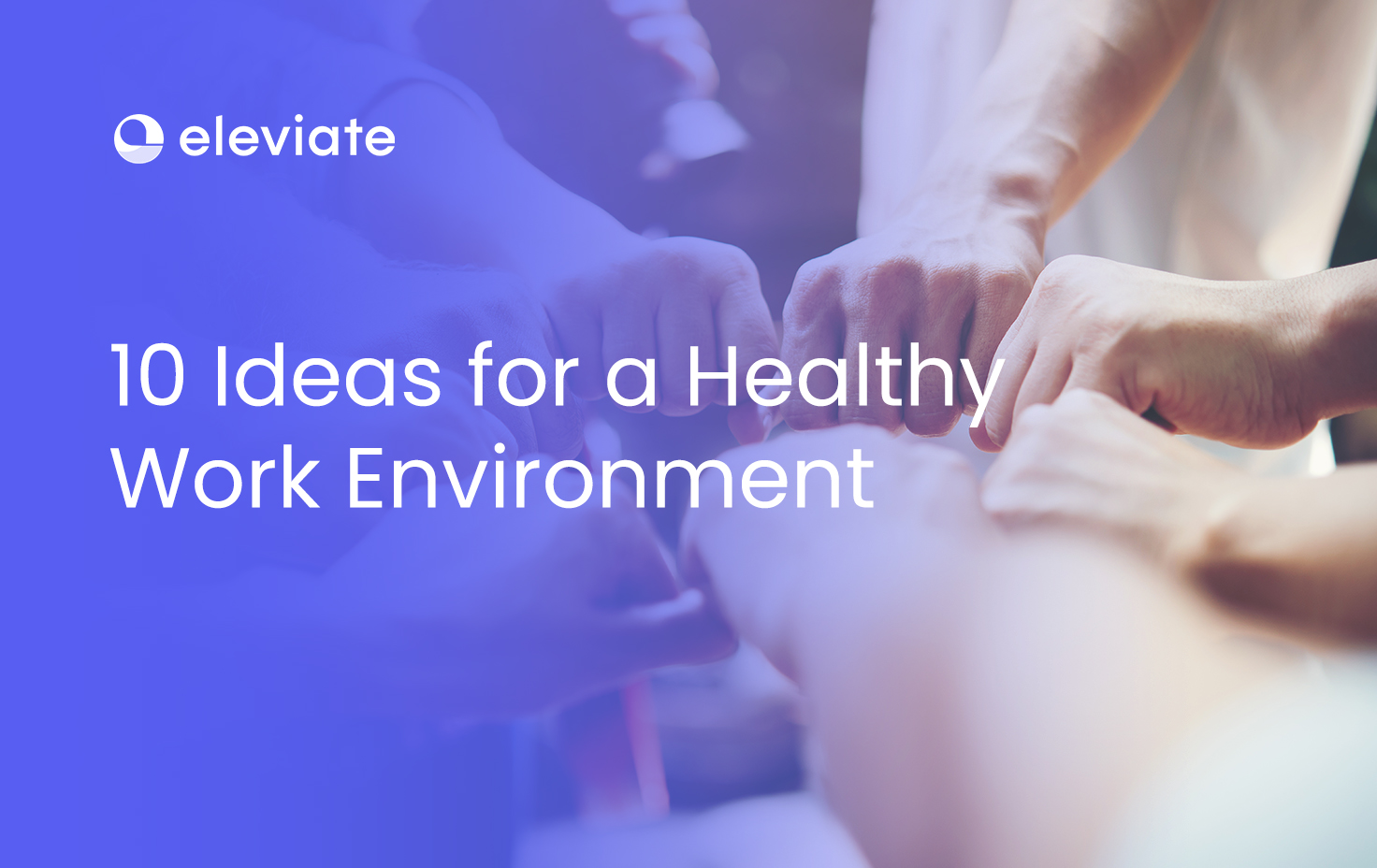Caffeine, while helpful, also exposes you to numerous health risks. You can quit caffeine and switch to healthier alternatives, supercharging your health regimen.
Do you take coffee first thing in the morning and a few times throughout the day to stay more alert and energised? This beverage is well-known for boosting your energy and stimulating the central nervous system, making you feel more awake. However, despite the undeniable benefits mentioned above, caffeine also has significant downsides, such as increased alertness, digestive issues, and insomnia.
You are not doomed, though; there are healthy alternatives you can explore. Read on for more on caffeine alternatives for healthier living.
Explore Healthy Caffeine Alternatives
Drinking coffee and other caffeinated beverages is common in most people's morning routine. Nonetheless, they are not the healthiest options. Caffeine impacts your body in many ways, such as spiking blood pressure. It also interferes with nutrient absorption, such as calcium, and leads to increased acid production in the stomach, to name a few concerns. You may struggle with insomnia, dizziness, restlessness, anxiety, headaches, and dehydration due to excessive caffeine intake. This is not to mention the chances of developing a dependency, especially as you take more to achieve the same result since your body gets used to caffeine.
Why is replacing caffeine good for your health?
You might be looking for a caffeine substitute to beat the developing addiction and the inconvenience caused when you can't have some. Nonetheless, there are notable health benefits you will realise as soon as you quit caffeine. Your heart health will improve; your blood pressure will decrease; and your sleep will get better, which will help you decrease anxiety levels and stay in a good mood.
The purported health benefits derived from caffeine may not match the downsides. Let's look at some healthy substitutes that offer more benefits than caffeine.

The top 15 alternatives to caffeine
Why are you considering caffeine replacements? Reasons such as being pregnant, dealing with sleep challenges, caffeine allergy/sensitivity, or medical conditions like epilepsy or glaucoma could be the primary driver behind your quest. Regardless of your reasons, you'll find great caffeine alternatives that can help you achieve the same effect without exposing you to many health concerns. The top options include:
1. Start with decaf
If you quit cold turkey, withdrawal symptoms can get the better of you, making it difficult to maintain a caffeine-free lifestyle. The symptoms' magnitude varies from person to person based on how long they've been taking caffeine. The common ones include lack of energy, headaches, fatigue, poor alertness, depressive moods, increased irritability, and foggy feelings, to name a few.
Your quest to replace caffeine can take a significant blow as the withdrawal symptoms hit, especially considering your demanding schedule in today's fast-paced world. As you strive to reap the benefits of a caffeine-free life, quitting gradually can help you stay on track. You can wean off by switching to decaf and, within a short period, typically a week or two, have an easier time without caffeine. Decaf coffee (decaffeinated) means over 90% of the caffeine is removed from the coffee beans. The taste and flavour can help you slowly limit caffeine intake and switch from regular coffee to healthy alternatives.
2. Chicory root coffee
While the "coffee" in chicory root coffee might have you thinking it is loaded with caffeine, it isn't. Chicory roots are used to make the coffee. The roots are roasted, ground, and brewed to make the coffee. The brew tastes like coffee and features a fantastic earthy and nutty flavour. The flowering plant in the dandelion family offers many health benefits since it includes nutrients such as:
Protein
Fibre
Fat
Inulin
Manganese
Potassium
C and B vitamins
Phosphorus, to name a few.
With such nutrients, besides being caffeine-free, the herbal coffee alternative helps improve your health in areas including:
Digestive health
Management of blood sugar
It helps decrease inflammation.
3. Chai tea
Chai, in many places, loosely translates to tea. Traditional Chinese medicine features a variant of tea, commonly made from leaves, dried flowers, roots, fruits, or seeds. Chai tea traditionally features ingredients including cinnamon, cardamom, cloves, and black pepper corns. This has evolved, and you can find more spices, including nutmeg, mace, and vanilla, to name a few, in the chai tea brew. A morning cup of the brew is loaded with nutrients that can help improve your cardiovascular and digestive health. The nutrients can also aid in managing weight and blood sugar levels, to name a few benefits.

4. Rooibos tea
Rooibos/red tea, or red bush tea, originates from South Africa. It is derived from a shrub known as Aspalathus linearis. The caffeine-free tea is quickly gaining favour, especially as an alternative to options like green and black tea, due to the many health benefits it offers. The flavorful brew is packed with antioxidants that help the plant fight stress. Rooibos tea properties can also help your body fight health issues, protecting you against concerns like heart disease, stroke, and cancer.
5. Peppermint tea
Peppermint tea traces its origins to India, where it was used as an ingredient in herbal mixtures for treating colds, coughs, and indigestion, among other concerns. Besides its medicinal purpose, peppermint tea is a great caffeine alternative considering its antioxidant features, minerals, and vitamins. This is because it can help boost energy, improve your alertness and focus, among other aspects associated with caffeine. This is without caffeine's impact on your sleep quality, meaning you can take it throughout the day for sustained energy levels.
6. Golden milk
Golden milk is made with turmeric, hence the gold or yellow hue. It typically features nondairy milk, turmeric, ginger, cinnamon, and other spices. These ingredients give golden milk anti-inflammatory and antioxidant properties. The improved immune system is among the notable aspects, prompting more people to turn to golden milk.
Traditionally, golden milk was consumed to help fight diseases like the flu and the common cold. This is because milk contains antiviral, antifungal, and antibacterial properties that can boost your body's ability to fight infections. Before you dive in headfirst, though, it is worth noting that turmeric impacts iron absorption. Therefore, besides taking moderate doses, consulting your doctor or wellness professional is recommended. The professionals can help ensure that you reap the most benefits without being exposed to health risks.
7. Apple cider vinegar
If you are looking for an incredibly nutritious caffeine alternative, then apple cider vinegar (ACV) could be all you need. ACV is made by fermenting crushed apples. Yeast and bacteria help speed up the fermentation. AVC features acetic acid that offers health benefits such as managing insulin resistance. AVC also has an energy-boosting impact. Simply take a few teaspoons and mix with water for an instant energy boost.

8. Matcha tea
With its roots in Japan, green tea powder made from dried leaves is among the most popular healthy coffee alternatives. The tea is loaded with beneficial properties, including antioxidants. Matcha tea can help boost your liver and heart health, enhance brain function, prevent cancer, and aid weight loss. The hot drink offers a creamier, sweeter, nuttier taste, while the cold one is more refreshing. A morning matcha tea cup can help give more energy and alertness, making it a great coffee alternative.
9. Lemon juice
Lemon juice is a popular household item that serves many purposes. It can be used to remove stains and for medical and culinary purposes, to name a few. Lemon has been used in the medicinal field for hundreds of years, showcasing its effectiveness. The fresh lemon juice is a rich source of vitamin C. It helps improve your immune system, gum and skin health, bone formation, and connective tissue repair, to name a few health benefits. Adding hot water to the fresh lemon juice and other ingredients like honey makes your morning drink more refreshing and energising.
10. Rhodiola
Rhodiola grows in extreme conditions, mainly in the cold mountainous regions of the world, mostly in Asia and Europe. This means the plant needs to adapt to the stress of such extremities to thrive. The plant features properties that can help your body deal with stress. Rhodiola, also referred to as "golden root", has been used in Scandinavian countries for years, especially for stress, anxiety, and depression management. Rhodiola is among the healthy herbal teas you can turn to as you strive to quit coffee while realising the energy-boosting properties you need to go about your day.
11. Cacao powder
Cacao powder's flavour and function closely resemble cocoa. Nonetheless, its nutritional content is higher. Here are the benefits of the powder form of cacao:
Lower blood pressure
Improved circulation to the heart and brain
Prevent blood clotting
Better sleep quality
Managing irritable bowel syndrome
Weight loss
Skin health
Managing diabetes.
Cacao powder also possesses anti-inflammatory and antioxidant properties and can significantly improve your mood.
12. Smoothie
Have you been researching ways to increase your fresh fruit and vegetable consumption? How about you quit coffee and substitute it with smoothies? Following your produce, smoothies can be slightly sweet compared to coffee and caffeinated beverages. They are naturally sweet, meaning you don't need to include additives, most of which tend to be unhealthy. The trick to making your smoothies your go-to is spicing them up with ingredients offering an energy boost, fruity flavour, and aroma like peppermint or cinnamon that improve your alertness. The notable health benefits fresh fruits and vegetables offer continue to propel their popularity. Those include:
Improving digestive health
Lower cholesterol levels
Immune system bolstering
Improve bone strength
Reduce the risk of chronic diseases, among other contributions.
Besides fibre, you can ensure the smoothie routine offers a rich source of vitamin C and minerals, among other nutrients, by playing around with the ingredients. Given the extensive collection of fruits and vegetable combinations, including spices and herbs, your smoothie can offer a healthy kick of fruity flavour and satisfying ingredients to jumpstart your day and help you stay at your best.
13. Carob
Carob is caffeine-free, has less fat, tastes like chocolate, and is packed with healthy nutrients. Carob is made from the pods of a carob tree native to the Mediterranean region. Ripe pods are roasted and grounded into a fine powder, commonly used as a healthy alternative to chocolate. Carob can offer an energy boost like caffeine, helping you fight fatigue and stay alert. Including carob in your routine also boosts your digestive health as it helps control bacteria in the intestinal tract.

14. Ginseng
Ginseng is a popular ingredient in various energy drinks. Ginseng has been used for centuries in Asia and North America. Besides improving your energy, mood, focus, and endurance, the herbal tea offers other health benefits, such as helping with blood glucose regulation and immune development. Its anti-oxidant properties further help lower inflammation, improving your overall wellness.
15. Hydrate
Most of the time, fatigue is simply a sign that you are dehydrated. A glass of warm water can give you a natural energy boost that doesn't expose you to any health risks. Hydration is vital for your overall health, yet it is easily overlooked. Besides drinking enough water, it also helps if you avoid habits that contribute to dehydration. This includes taking too much caffeine, sugary snacks, alcohol, and fried and junk foods, to name a few. Hydration hacks, such as carrying a portable water bottle, can help supercharge your efforts.
Find better alternatives with Eleviate
Finding a healthy substitute for caffeine is easier said than done. This is more so if you are concerned about pre-existing medical conditions, have allergies, or struggle with dependency and withdrawal symptoms. Cutting your coffee habit requires a strategic plan since an approach like quitting cold turkey can backfire. Options like energy drinks are the usual go-to for many, but their caffeine content is high, some even more than coffee.
If you have an allergy or deal with any medical conditions, you must carefully examine the caffeine alternatives you pick. Please keep in mind that some ingredients may cause allergic reactions beating the notable health benefits. Others may interfere with nutrient absorption, especially if you are under medication. This poses a significant challenge, but it should not stop your quest to switch to healthier options and quit caffeine.

So, how do you find a better solution, including junk food alternatives? In the modern arena, you have a lot at your disposal to track your progress, stay on track, and adopt a healthier lifestyle. Eleviate is among such solutions, offering personalized workout programs. Eleviate can help you tailor a practical exercise regimen and actively manage your mental health, nutrition, and other aspects that impact your overall health. You can keep track of your workouts, meditation practice, and diet, among other things.
The progress you notice can motivate you, making it easier to stay on track. You won't be so tempted to have that cup of coffee in the morning since, with a healthier regimen, you'll enjoy quality sleep. You'll wake up feeling fresh, energised, and more alert. The natural energy level boost is then complemented by caffeine alternatives, making it easier to cruise through your activities of daily living.
Besides the DIY process, you can also turn to experienced wellness professionals from Eleviate to help you develop a more productive approach. You may be dealing with something that appears minor but has a significant impact. For instance, should you take yerba mate as an alternative to coffee, considering the fact that it contains caffeine? Is medium heat ideal when taking golden milk to ensure you get the most out of the potential health benefits?
Such questions may cause stress, impacting your quest to find and effectively include caffeine alternatives in your regimen. Wellness professionals can hold your hand throughout your journey to switch from caffeine-rich to caffeine-free options. Their support could be all you need to ensure you don't relapse, especially when facing challenging moments, such as unfriendly deadlines.
Summing up
For many, a caffeine-free life may seem like an insurmountable challenge. Your body's energy production may not give you as much as you need to manage your demanding schedule effectively. Nonetheless, while caffeine and energy drinks give you that kick, their effects can do more harm than good. Nevertheless, you can easily find fantastic caffeine alternatives that have energy-boosting properties to help you face your mornings. Besides the energy boost, such a solution has other benefits, including:
Improving your heart and brain health
Cutting some pounds and maintaining a healthy weight range
Managing blood glucose
Lowering body inflammation, to name a few.
While keeping up with the fast-paced world may be a perfect excuse, it shouldn't drive you to unhealthy living. It is still possible to lead a healthier, happier, and longer life despite the daily stressors. Switching to coffee alternatives is a great way to enjoy your mornings without having to deal with severe health implications.





